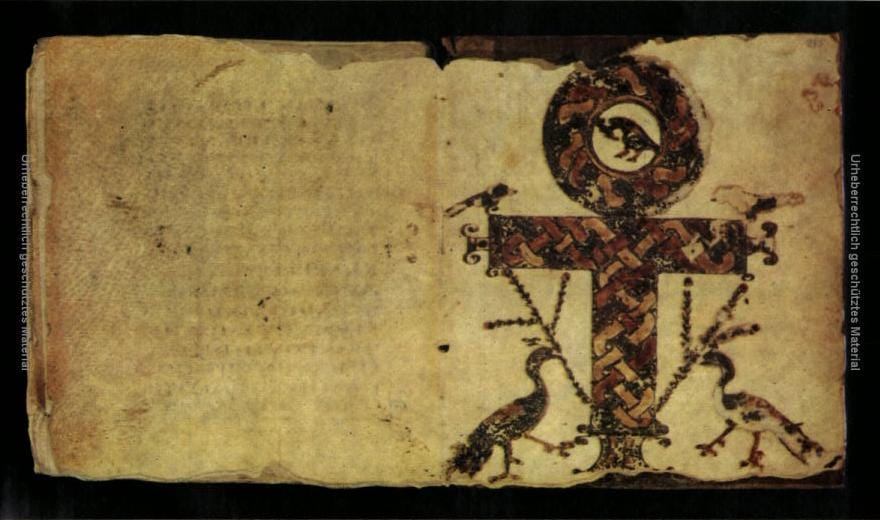One seeks an organizing principle applicable to the self and their universe. Akin to a monogram for the self one desires to have at hand a matching cosmogram to navigate everything with. In consideration of the microcosmic self one struggles to ignore the macrocosm. How one governs their life ought to be, it is intuited here, in congruence with the operating system, as it were, of a hypothetical world government. Past failures of this league of nations to bring about peace and harmony for humankind is in no way an indictment of the project, but I digress.
Such seeking and desire are intensified when the times necessitate contemplation. When one is hitting rock bottom. When one's world and the world at large go through fundamental upheavals, if you will. When, today, the first-among-equals Rome is in a state of sede vacante, in the liminality of the times, amid the interregnum, one seeks this self- and world-organizing principle. In the Confucian sense, harmony is being sought in one's heart so it can be scaled to one's family, nation, nations, and to the world.
And where does one go to find the said organizing principle? One necessarily begins from familiar spaces, literal or discursive. One taps into their physical and epistemic vicinity for that is what is reachable. As such one begins with a pair of 5 fingers channeling their mind. One relies on the 5 senses bestowed upon them. One consults with memory, knowledge, feelings, wishes, and fears, fear of death, of the unknown, of failure to understand -- to be understood.
Universal Christendom offers a paradigmatic template for an initial thought process. One finds a macrocosm in the metaphorical organism dubbed the body of Christ. And in the self that one's embodied consciousness permeates, one finds a microcosm, existing vis-à-vis other bodies, both Christ-ian and pagan, organic and celestial. One draws parallels between the 5 elements of Eastern thought (of spirit, water, fire, earth, air) and the 5 sees of Justinian the Great's pentarchy, including and beyond Rome, i.e., Constantinople, Alexandria, Antioch, and Jerusalem.
Antenna Crux Ansata explores the aforementioned themes, and more. It's a philosophy venture pursuing a unified principle to organize self and world. One posits the existence of such a principle, and sets out on a journey to discover it. Short of discovering it in some Platonic form, one would fall back to inventing a principle, perhaps by syncretic means. Discovered or invented, or more precisely in the journey of discovery and invention, and of exploration more generally, the principle would be lived, instantiated, in the here and now.



